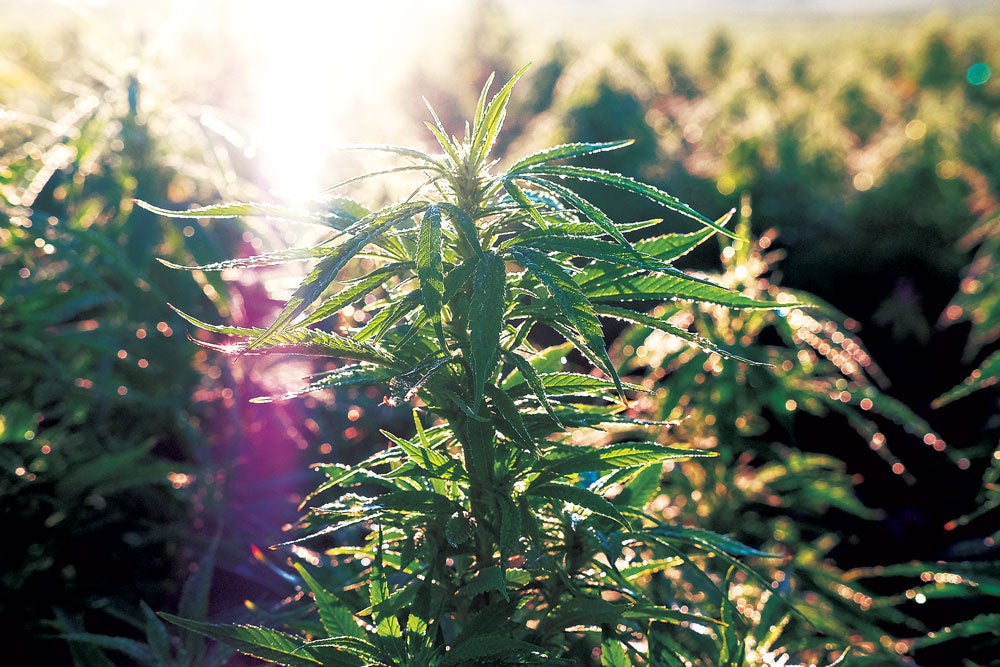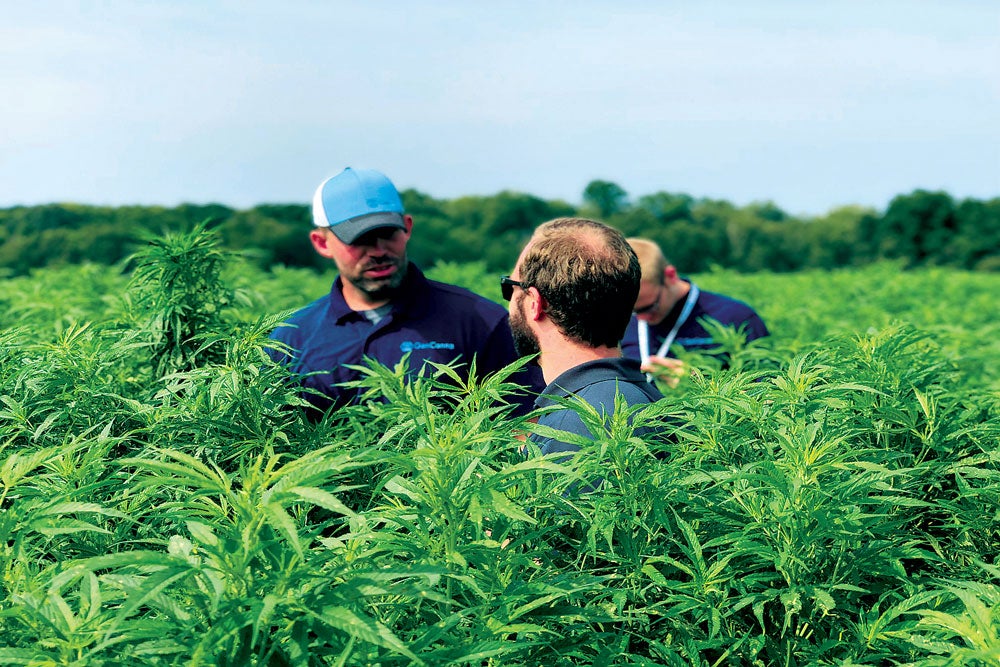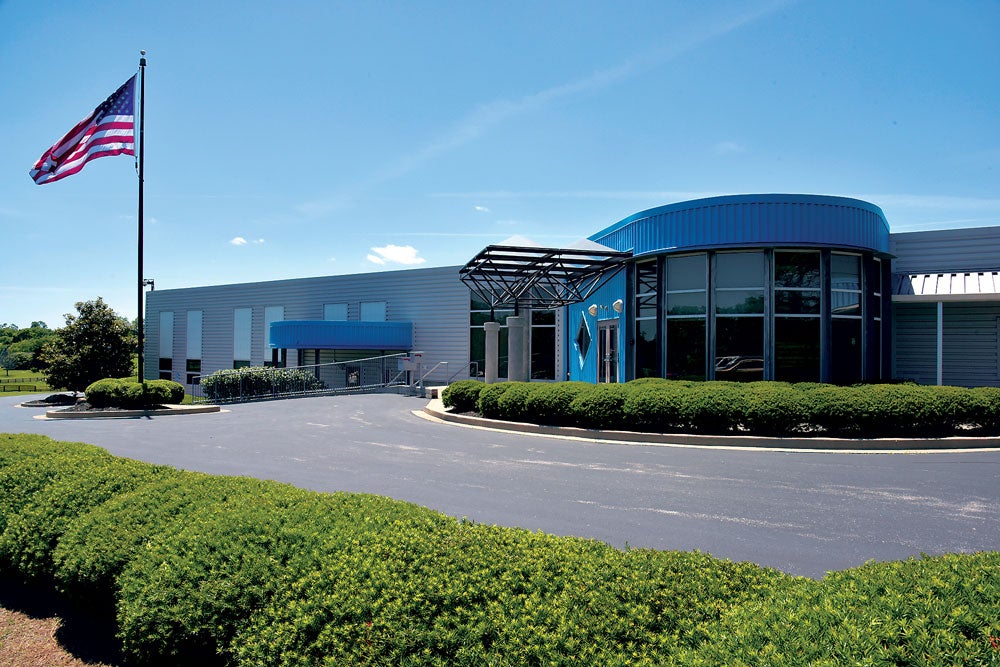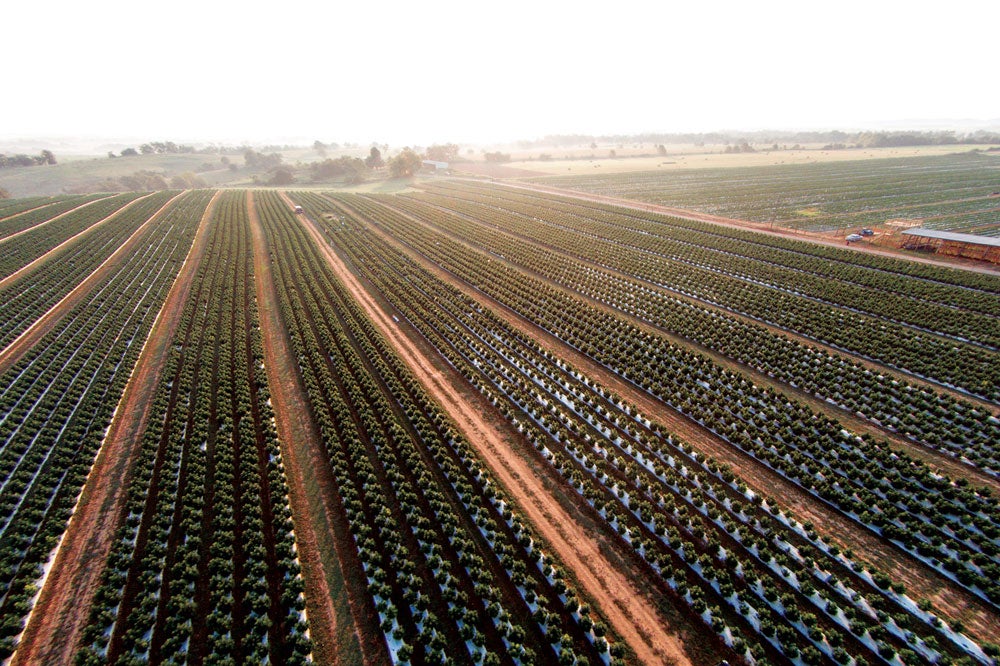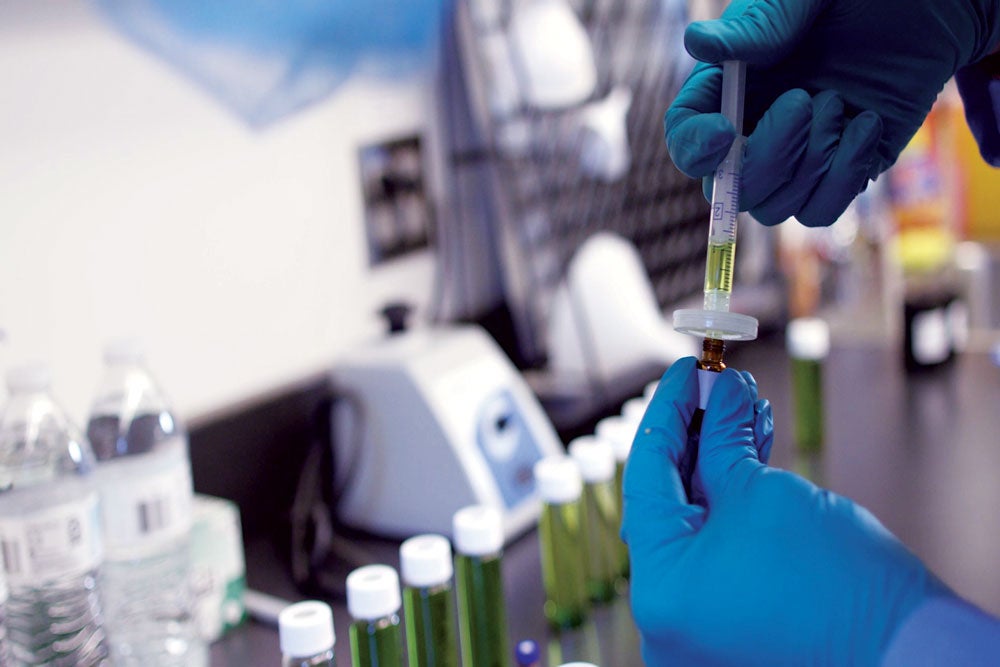PROGRESS 2019 | In the spotlight: GenCanna credits quality, local people for success
Published 10:32 am Wednesday, February 27, 2019
GenCanna is putting a national — and even global — spotlight on Clark County.
The hemp production company has grown significantly since its inception in 2014. Last year, and as recently as the past few months, GenCanna executives have announced its latest innovations and plans to expand, marking Clark County as one of the world’s premier homes to hemp.
GenCanna President Steve Bevan said GenCanna — founded by industry pioneers who champion the world’s leading hemp genetics, cannabidiol (CBD) formulations and groundbreaking legislation — focuses on scaling premium agricultural hemp production for food products to promote easy availability locally, nationally and globally.
“We come from very humble beginnings,” Bevan said.
Bevan said the three founders — including himself, Chief Executive Officer Matty Mangone-Miranda and Chief Science Officer Christopher Stubbs — had considered Colorado, California and Canada before settling on Kentucky as the place to grow their vision.
After meeting the former agriculture commissioner, James Comer, and touring the area, Bevan and the other founders saw the potential Kentucky — and most notably Clark County — offered.
“What was amazing is everything we could possibly want and need for the growth of GenCanna and our mission is already here,” Bevan said.
GenCanna, which was an inaugural member of the Kentucky Department of Agriculture’s industrial hemp pilot program and the first hemp pilot program participant explicitly dedicated exclusively to researching and commercializing hemp-derived CBD in the state, officially opened its second facility in Winchester in 2018. The building at 321 Venable Road houses the company’s marketing, administrative and sales departments.
Its first location, the GenCanna Hemp Research Campus (HRC), is on nearly 150 agricultural acres off Colby Road, which was formerly used by a multinational tobacco firm as a research facility in Winchester.
“One of the great things is we repurposed a lot of these underutilized former tobacco resources,” Bevan said. “We’ve also revitalized or re-energized a lot of the people who were working around that tobacco business at the stage where hemp is right now, in terms of an agricultural commodity.”
At the HRC, GenCanna conducts groundbreaking research and commercialization of hemp processing methods and product development, resulting in the creation of more than 60 jobs and $20 million in economic impact in Kentucky.
GenCanna uses whole-plant hemp extracts which are either full-spectrum — such as CBD and a natural balance of cannabinoids, flavonoids and terpenes — or isolated Crystalline Cannabinoid CBD.
“We want to make a reliable, sustainable supply of products including the CBD we manufacture,” Bevan said. “And by reliable and sustainable, we mean top-quality.”
These bulk, wholesale products are available to customers in crystal Hemp-Derived CBD powders and oils and can be prepared as proprietary water dispersible powder to support large-scale manufacturing needs.
Mangone-Miranda spoke at the ribbon-cutting ceremony for GenCanna’s second location, and said the new facility was a nod to the company’s growth.
He said the company started with only a few hundred plants in the ground in 2013, and this year, GenCanna has about 3 million. Mangone-Miranda said he hopes GenCanna is listed as one of the large hemp business on Nasdaq within the next two years.
Bevan said the first few years were hard.
“We have very few plants outdoors, like literally less than a quarter of an acre,” he said. “It’s funny. This past year, we had almost 1,000 acres. Next year, we expect to do a lot more than that.”
The new facility brought about 30 to 40 new jobs to Clark County. As of January 2019, the company employs about 120 people, and Bevan said there’s plenty of room to grow.
GenCanna also recently announced its first patentable non-GMO hemp genetics with 0.0 percent THC.
THC, or tetrahydrocannabinol, is the substance in marijuana which produces the “high.”
Industrial hemp naturally has low levels of THC, but not enough to produce the “high” reaction.
Kentucky Agriculture Commissioner Ryan Quarles, who has been an outspoken supporter of GenCanna’s efforts to secure the Commonwealth as a leading hemp producer, said the innovation “could be a revolutionary game changer to industrial hemp production.”
The announcement created an opportunity for Outdoor Cannabis Genetics to debut through GenCanna’s Certified Farming Network. Farmers in the network will be the first to have access to Outdoor Cannabis (OC) genetics.
GenCanna also announced earlier this year it would sponsor masters and Ph.D. fellowships at the University of Kentucky. Students will focus on genetic improvement of hemp for enhanced CBD levels, metabolic engineering to increase production of minor cannabinoids, remote cannabinoid analysis and variety development and characterization for certified seed production.
In late 2018, GenCanna announced significant expansion plans including the build-out of a $40 million facility in Graves County that will bring more than 80 new jobs to the region.
“It’s a scaled-up version of what we’ve done here,” Bevan said.
The company also has plans to begin aligning cultivation operations with its strongest farming competitor and partner at the Hemp Research Campus, Atalo Holdings. GenCanna and Atalo will each have access to 10,000 acres of farmland for the 2019 cultivation season.
Bevan said even among the significant growth of the company, quality and science remain at the forefront of GenCanna’s mission. That sense of quality must start in the greenhouse or the farm all the way through to the finished product.
Bevan said GenCanna assembled a team of in-house developers, scientists, farmers, operators and botanists to ensure industry leading quality. All of its products are tested for safety and quality by independent laboratories.
“We are vertically integrated, and with our small group of people, that means you have learned in every part of the value chain,” Bevan said.
GenCanna partners with research scientists from local universities, including the University of Kentucky, to create cutting-edge programs in specialized genetics, agronomic practices and novel wholesale product formulations.
“We’ve become very proficient at marking a very high-quality product right here in Clark County because we didn’t rush to put something out for sale,” Bevan said. “We waited until it was excellent.”
GenCanna also offers a full suite of packaged, white label products including custom-bottled oil drops, capsules and topical creams, for general and specific health-related uses.
Bevan said one of the most integral parts of the company is its farmers, especially those in Clark County.
“We learned from every farming experience because every farmer has a little different insight, a little different history, little different ideas,” Bevan said. “Farmers have amazing ideas … they’re very creative people. And I don’t think most people understand how creative farmers can be, especially when things are a little tougher. The farmers in Central Kentucky have had a tough economic road for a long time, and they’ve learned to do an awful lot with very little.”
Over the past five years, GenCanna Global has slowly and steadily grown on the outskirts of Clark County, hidden away from the downtown hustle-and-bustle that usually attracts attention. And the goal, Bevan said, is to keep growing because many people are finding CBD products to be helpful.
“If that’s the case, I would say our mission is to increase access,” he said.
As it continues to increase access to hemp-derived products, the world’s eye will remain on GenCanna, and in turn, Clark County.
Bevan said GenCanna’s success thus far can be attributed, in part, to Kentucky’s history with hemp. Its future success further solidified with the passing of the 2018 Farm Bill, which removed industrial hemp from the federal Controlled Substances Act and gave hemp growers access to USDA programs such as crop insurance.
But above all, Bevan said GenCanna’s “secret sauce” has been its people, the greatest treasure of Clark County.
“We haven’t tried to reinvent anything,” Bevan said. “We tried to use that which is around and give especially farmers a new crop and a new way of monetizing that crop. So our best ability is that we’re able to identify good people that we can work with … it really is about the quality of people locally.” §


